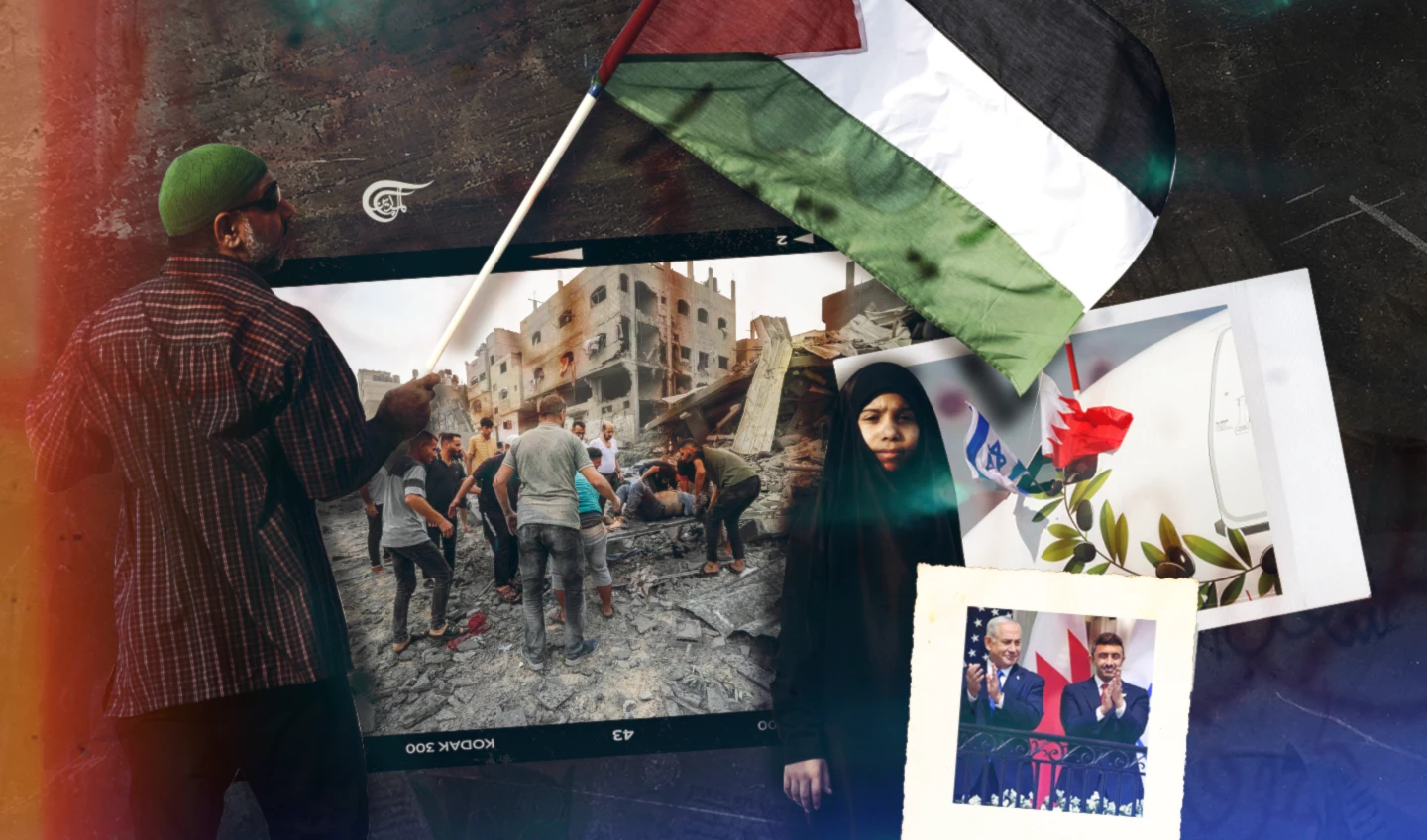Bahrain: Elections Without People… What's the Story?
This is the state of the opposition and its supporters, politically isolated in an official manner, with no legal institutional presence, and no political rights.
-

The opposition found in the boycott a way to bring to mind the political crisis and to eliminate any pretext for providing popular legitimacy to the ruling authority.
Public opinion in Bahrain is watching the approach of November 12, the day on which the sham parliamentary and municipal elections will take place, in light of a decisive popular boycott. The national opposition forces will take part in the boycott, along with the Al-Wefaq National Islamic Society, whose electoral bloc in the 2010 parliament obtained 65% of the total votes at the time.
In the past years, the opposition successfully resorted to the option of boycotting four times, as follows: on October 24, 2002, in protest of the issuance of the “grant constitution” unilaterally and the coup against the National Action Charter, which produced a powerless legislative authority; on September 24, 2011, following the withdrawal of the Al-Wefaq bloc after the political crisis erupted; on November 22, 2014, which was followed by the arrest of the Secretary-General of the Al-Wefaq Society as a punitive measure for several reasons, including the success of the boycott; and on November 24, 2018, when the election participation rate did not exceed 35%, according to opposition estimates.
In these experiments, the authorities were trying to tamper with the numbers of the election results and were advertising for numbers that suggested the failure of the boycott. In addition, the authorities resorted to the usual electoral intimidation measures, such as threatening those boycotting the elections and those whose travel documents do not bear the election stamp, of depriving them of housing, livelihood, and employment services.
However, this time they resorted to a procedural and punitive ploy by eliminating tens of thousands of people who boycotted the elections twice from the electoral roll. The slip of the tongue of the head of the supervisory committee in the Northern Governorate, Muhammad Mirza Aman, in 2018, in his statement to the Bahraini newspaper Al-Bilad, revealed this ploy. The government was claiming that it was an automatic deletion as a result of digital transformation. However, tampering with the electorate was at the heart of the government’s interests in the 2010 elections.
At the time, Al-Wefaq complained about the disappearance of hundreds of voter records. We must note that the secret number hidden in the electorate is the number of politically-naturalized voters, who are in the thousands. Before the official number of the electorate was issued, the news published by the government-owned newspaper Akhbar Al-Khaleej, which is based on the figures of the Central Informatics Organization, led to the issuing of a quick denial by the executive management of the elections on October 01, 2022, to cover up the number of the eliminated voters, which is approximately 100,000 at least.
It is true that there are punitive measures, but there is also the Political Isolation Law. Bahrain is the only Gulf country that applies it against the opposition political societies that were illegally dissolved, namely: Al-Wefaq, Waad, and Amal. This law, which deprived the members of these societies of their political rights to run for elections or vote, has affected thousands.
This is the state of the opposition and its supporters, politically isolated in an official manner, with no legal institutional presence, and no political rights.
What about the loyalist societies? Abdullah Al-Huwaihi, the former Secretary-General of the National Unity Gathering Society – which was established to object to the opposition – complained about the weakening of the loyal political societies, accusing the state media of “demonizing them”. But the truth is that the government, having suppressed the opposition, saw no need to strengthen civil society. Therefore, there are only 9 out of more than 300 candidates who are affiliated with political societies. Therefore, in the next parliament, the parliamentary blocs of political societies will be broken up, and will be filled with individual candidates. In addition, amendments were made to the internal regulations of the House of Representatives by a royal decree issued a few days ago that increased the powers of the President of the Council – who is appointed by the royal court despite the formal method of appointment in the Parliament – and reduced the obvious powers of the deputy in terms of speaking and objecting, as if the Bahrainis had a second (appointed) Shura Council.
The opposition found in the boycott a way to bring to mind the political crisis and to eliminate any pretext for providing popular legitimacy to the ruling authority, especially since there is a Shura Council that competes with the House of Representatives in terms of powers, which takes away the legislative initiative. Moreover, in light of the government’s official stubbornness, the non-stop policies of discrimination and violations that are the face of the state today, and the absence of any will for an internal political solution, the government would have – undoubtedly – taken advantage of any decision to participate – under the existing circumstances – to continue crushing the capabilities of the political community and finish it off, and most importantly, continue the campaign of revenge and retaliation against the political opposition because it opposes the government.
In fact, the government has sought to find an alternative civil society parallel to the opposition for years, but failed to do so!

 Baqer Darwish
Baqer Darwish
 5 Min Read
5 Min Read







